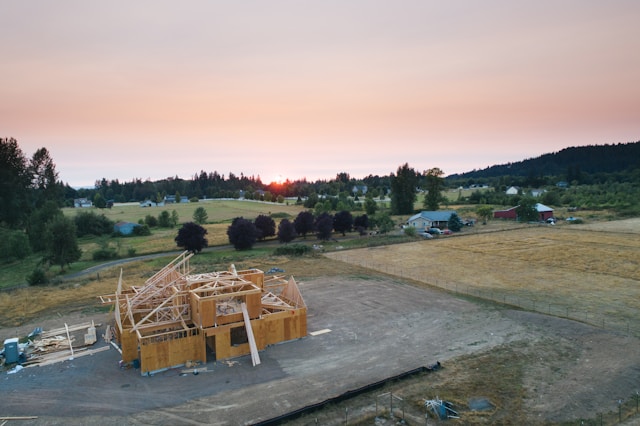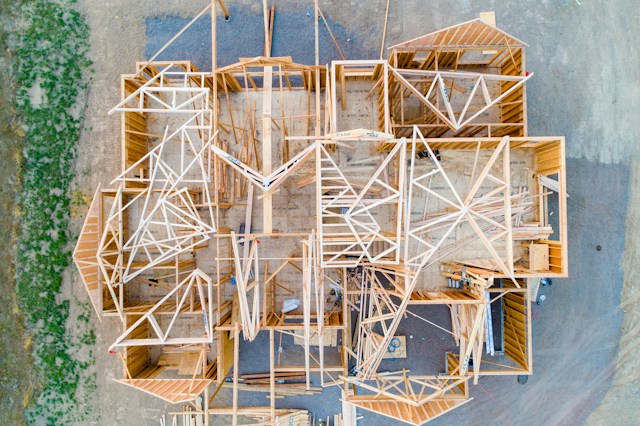Embarking on a home construction project is an exciting venture that offers the opportunity to create a space tailored to your unique vision and lifestyle. However, this endeavor also comes with its fair share of challenges and complexities. Thoughtful planning and consideration in the initial stages are crucial to setting the foundation for a successful and fulfilling home construction journey. In this guide, we’ll explore key considerations that should be at the forefront as you begin the process of bringing your dream home to life.
Setting Clear Goals
The initial stages of home construction should start with a clear understanding of the purpose and vision of the new home. Whether it’s a serene retreat from the hustle and bustle of the city or a vibrant hub for entertaining family and friends, defining the primary objectives for the space will guide all subsequent decisions. Considerations should extend to the desired layout, functionality, and aesthetic preferences that align with your lifestyle and future plans. A reputable home builder in Edmonton adds that homeowners should with contractors who thoughtfully select materials that consider their client’s vision and requirements. Needless to say, the quality of materials is an essential step in building your dream. By prioritizing transparency, integrity, and safety, individuals can confidently select a home builder that aligns with their goals and contributes to the flourishing housing landscape in their area.
Budgeting and Financing
Budgeting and financing are fundamental aspects of any significant project, including home construction. When embarking on such a venture, it’s crucial to develop a comprehensive budget that accounts for all potential costs, from acquiring the land and obtaining permits to the actual construction and interior design. Moreover, exploring various financing options, such as construction loans and mortgages, is essential to ensure the financial feasibility of the project. By leveraging financial planning tools, consulting with experienced lenders, and staying informed about current interest rates and lending regulations, individuals can navigate the complexities of budgeting and financing with confidence, ultimately laying a solid foundation for the successful realization of their home construction endeavors.
Selecting the Right Location
Selecting the right location for a new home construction project is a multifaceted decision that demands careful consideration. Factors such as proximity to essential amenities, accessibility to transportation, neighborhood safety, and future development plans should influence the decision-making process. Additionally, assessing the local housing market trends, property tax rates, and zoning regulations can provide valuable insights into the long-term viability of the chosen location. Partnering with reputable real estate agents and conducting thorough site visits can further facilitate an informed decision, ensuring that the selected location aligns with the envisioned lifestyle and investment goals of the individuals embarking on the home construction journey.
Choosing the Right Team
Building a home requires the collaboration of various professionals, including architects, builders, designers, and contractors. It’s crucial to conduct comprehensive research to identify reputable and experienced individuals or firms for each role. Engaging in detailed discussions and reviewing past projects can provide valuable insights into their expertise and compatibility with your vision.
Legal and Regulatory Considerations
Navigating the legal and regulatory landscape is an integral part of the initial stages of home construction. Understanding local building codes, zoning regulations, and permit requirements is essential to ensure compliance and avoid potential setbacks during the construction process. Seeking guidance from legal and regulatory experts can streamline this aspect and provide clarity on the necessary protocols.
Design and Planning
Designing the layout and aesthetic of the home is an exhilarating phase that requires meticulous attention to detail. Exploring different architectural styles, interior layouts, and material options can help in visualizing the end result. Additionally, considerations for sustainability, energy efficiency, and future-proofing of the home should be integrated into the design and planning process.
Infrastructure and Utilities
Planning for essential infrastructure and utilities is a foundational aspect of the initial stages. This includes ensuring access to water, electricity, and sewage systems, as well as considering the integration of smart home technology and sustainable energy solutions. Strategic planning in this area can contribute to long-term savings and environmental consciousness.

In conclusion, the initial stages of home construction demand a proactive and well-informed approach that encompasses a wide range of considerations. By setting clear goals, establishing a realistic budget, selecting the right location, assembling a capable team, addressing legal and regulatory requirements, and meticulously planning the design, infrastructure, and utilities, individuals can lay the groundwork for a successful and fulfilling home construction journey. This stage sets the trajectory for the entire project, making it essential to invest time and effort into these early decisions.
As you embark on this exciting endeavor, remember that each step taken in the initial stages contributes to the realization of your vision for the ideal home. With careful consideration, thorough research, and expert guidance, you can navigate the intricacies of home construction with confidence and set the stage for the creation of a space that truly feels like home.







